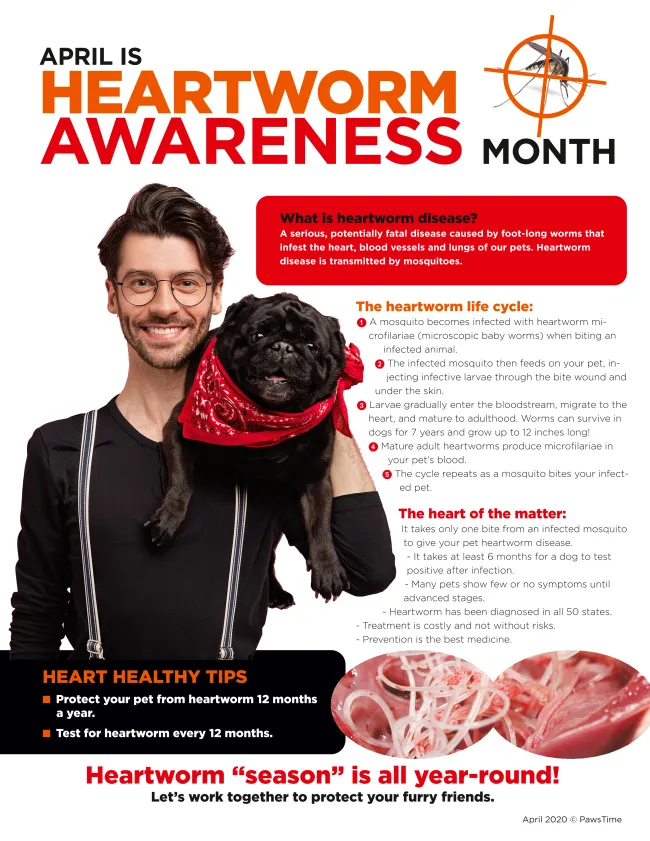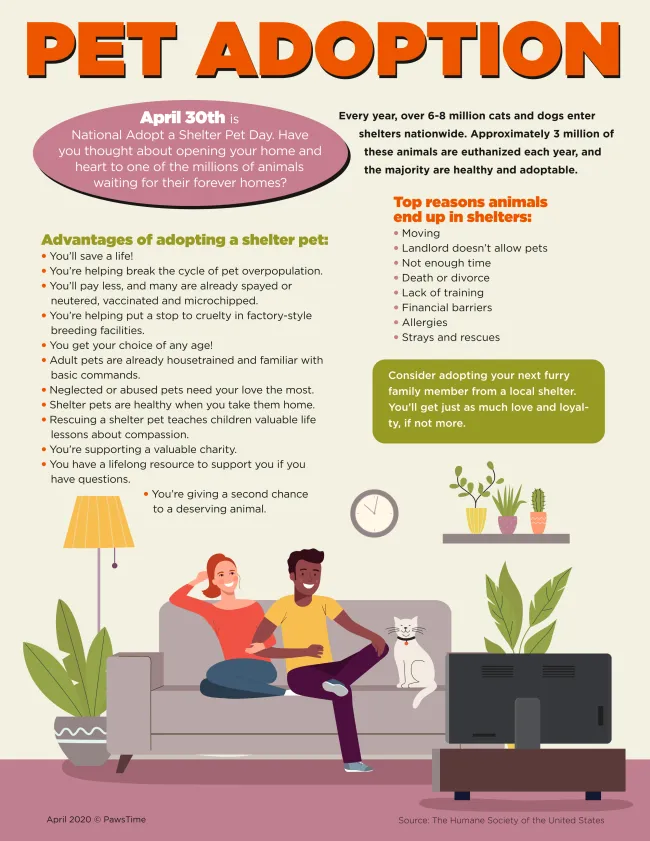Kit N' Caboodle
Happy Spring! Time to clear out those cobwebs that have been collecting all winter - your marketing strategy included. We're here to help you plant the seeds for success with a few easy ways to freshen up your online presence. Even a few small changes to your website, social media pages and directory listings can make a big difference in the way your clients perceive your practice. Check out this month's Tech Tips <> article to help you freshen up your strategy for spring.
With the new season in full swing, now is a great time to consider hosting an open house so you can introduce yourself to the community in a more personal way. This month's Practice Building <> article gives you tips and tricks for hosting a successful, family-friendly event that will keep your hospital top of mind with your clients and community.
This month we've included a bonus Hot Spot, giving you two helpful resources to share with pet parents. In our Heart worm Awareness Month Hot Spot, we've broken down the heart worm life cycle in a way that's easy to understand. We've also included talking points that confirm why it's so important for pets to be protected year-round. Our bonus Hot Spot is for National Adopt a Shelter Pet Day on April 30th. Feel free to share on social media or in your waiting area to educate families why they should adopt, not shop.
Pet Facts
- What do cats have in common with camels and giraffes? The same walk! These are the only animals to walk by moving both legs on one side of the body in unison.
- Just as no two human fingerprints are the same, no two dogs or cats have identical nose prints.
- A dog can locate the source of a sound in as little as 1/600 of a second.
- Blue-eyed, white-haired cats are more likely to be deaf.
- Is your dog afraid to go out in the rain? It may not be the threat of getting wet, but the sound of a heavy downpour.
- Domestic cats share 95.6% of their DNA with tigers.
Heart worm Awareness Month
Heart worm disease is a threat to your pets no matter where you live or travel, or what season we're in.
According to the American Heart worm Society, more than one million dogs currently have the disease. Just one bite from a mosquito is all it takes!
Here's the heart of the matter: millions of pets are vulnerable to infection - either because of gaps in protection, or because they're not on a regimen at all.
April is Heart worm Awareness Month. Annual screenings and proper prevention can keep your pets safe. Let's talk.

The best way to stop Heart worm is prevention. Talk to your Veterinarian today about ways to help your pet avoid this potentially deadly condition!
Pet Adoption
Every year, over 6-8 million cats and dogs enter shelters nationwide.
Approximately 3 million of these animals are euthanized each year, and the majority are healthy and adoptable. Consider adopting your next furry family member from a local shelter. You'll get just as much love and loyalty, if not more.
Easter Danger for Pets
Pet parents beware! Easter is filled with temptations for our furry friends.
Watch out for dangers that lurk in your Easter basket. Chocolate is toxic to pets, and plastic grass that's ingested can lead to an intestinal blockage.
Remember where you hide plastic eggs, especially if they're filled with unsafe items like candies, coins, or breakable toys.
If you share your home with cats, steer clear of lilies. Even a few licks of pollen can result in kidney failure.
All of us at Family Pet Practice wish you a safe and hoppy Easter with your pets!
Allergies
Are you struggling with seasonal allergies? There's a chance the same pollens, molds and grasses that trigger your misery can affect your pets too.
Symptoms of allergies in dogs and cats include excessive itching, paw licking, ear infections, and hair loss.
Did you know that fleas are a common cause of allergies? Flea allergy dermatitis is the most common skin condition in dogs. A year-round preventive is your pet's first line of defense against flea allergies.
If your pet won't stop licking or scratching, give us a call.
Dog Bites
According to the CDC, more than 4.5 million people in the U.S. are bitten by dogs each year. But with certain precautions, many dog bites can be avoided.
Early socialization with other dogs and people is important for building your pup's confidence.
Help your dog learn good manners with reward-based training classes.
Teach children how to understand body language so they can recognize signs of fear and anxiety.
Please keep your dog's vaccinations current and visit us for routine checkups so we can discuss any concerning behaviors.
Diabetes
Pets with diabetes cannot produce or utilize insulin properly which prevents the conversion of food to energy. As a result, extra sugar builds in the blood. This can lead to symptoms like excessive drinking and urination, and weight loss - even with an increased appetite.
Even though diabetes is not curable, it can be controlled - and your pet can enjoy a long, happy life.
As a pet parent, managing diabetes takes commitment. You can count on our team to educate and support you. Never hesitate to reach out for help!
Top 5 Tips for Pet Proofing your Backyard
- Choose pet-friendly flowers for your garden. Azaleas, lilies, daffodils and tulips are poisonous to pets.
- Keep your pets on a year-round flea & tick preventive.
- Protect your lawn from pests: eliminate standing water in birdbaths and planters, keep grass cut close, and don't overwater your lawn.
- Use a pet-safe fertilizer. Products with bone or blood meal can cause vomiting, diarrhea, or GI obstruction if ingested.
- Have your pets microchipped and make sure contact information is up to date. Some pets are notorious for escaping, even with a fence!



